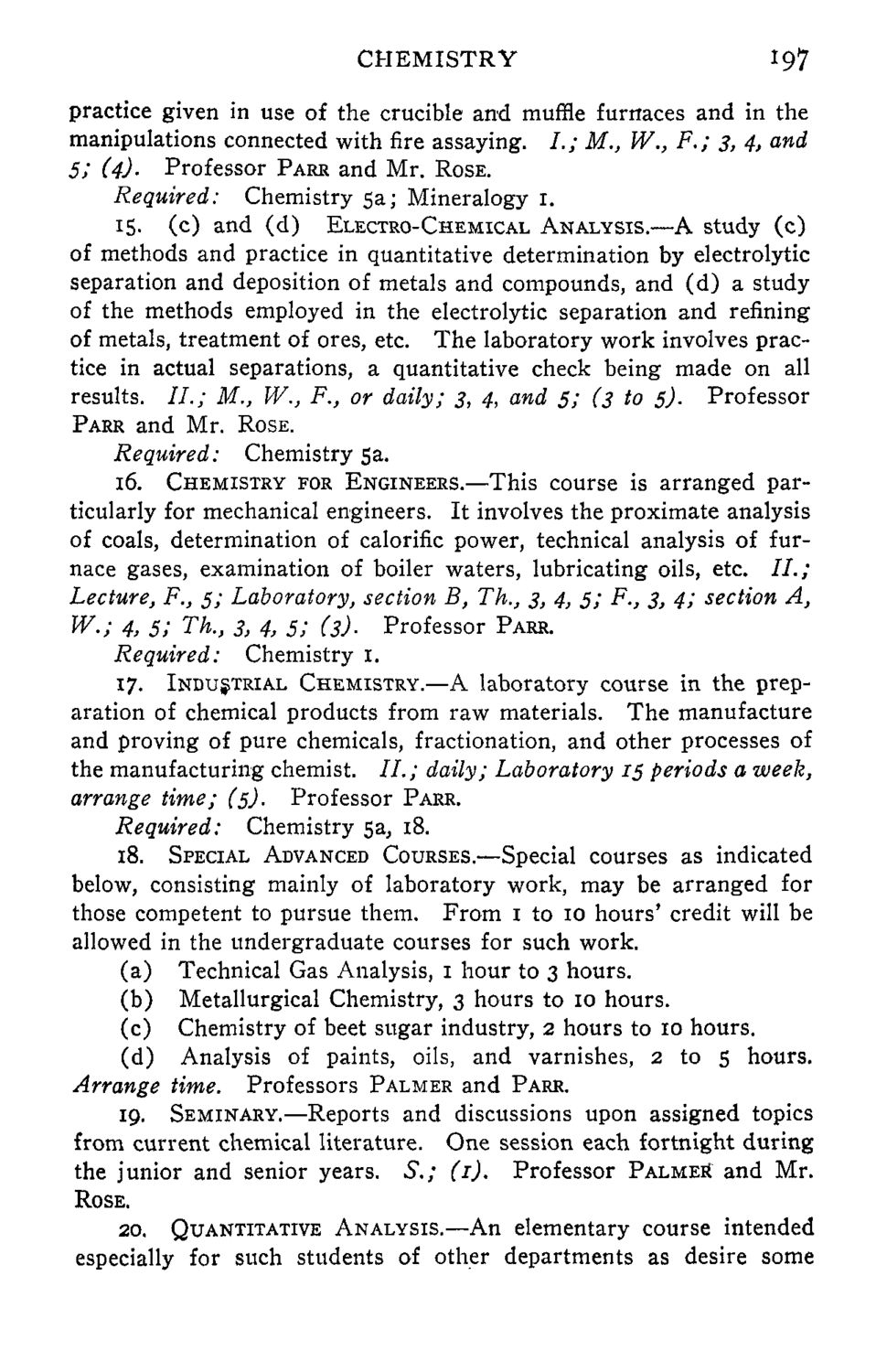Caption: Course Catalog - 1899-1900
This is a reduced-resolution page image for fast online browsing.

EXTRACTED TEXT FROM PAGE:
CHEMISTRY 197 practice given in use of the crucible and muffle furnaces and in the manipulations connected with fire assaying. / . ; M., W., F.; 3, 4, and 5! (4)15. Professor PARE and Mr. ROSE. Required: Chemistry sa; Mineralogy i. ELECTRO-CHEMICAL ANALYSIS.—A study (c) (c) and (d) of methods and practice in quantitative determination by electrolytic separation and deposition of metals and compounds, and (d) a study of the methods employed in the electrolytic separation and refining of metals, treatment of ores, etc. The laboratory work involves practice in actual separations, a quantitative check being made on all results. II.; M., W., F., or daily; 3, 4, and 5; (3 to 5). Professor PARR and Mr. ROSE. Required: 16. Chemistry Sa. CHEMISTRY FOR ENGINEERS.—This course is arranged par- ticularly for mechanical engineers. It involves the proximate analysis of coals, determination of calorific power, technical analysis of furnace gases, examination of boiler waters, lubricating oils, etc. II.; Lecture, F., 5; Laboratory, section B, Th., 3, 4, 5; F., 3, 4; section A, W.; 4, 5; Th., 3, 4, 5; (3). Professor PARR. Required: Chemistry 1. 17. INDUSTRIAL CHEMISTRY.—A laboratory course in the prep- aration of chemical products from raw materials. The manufacture and proving of pure chemicals, fractionation, and other processes of the manufacturing chemist. / / . ; daily; Laboratory is periods a week, arrange time; (5). Professor PARR. Required: Chemistry 5a, 18. 18. SPECIAL ADVANCED COURSES.—Special courses as indicated below, consisting mainly of laboratory work, may be arranged for those competent to pursue them. From 1 to 10 hours' credit will be allowed in the undergraduate courses for such work. (a) Technical Gas Analysis, 1 hour to 3 hours. (b) Metallurgical Chemistry, 3 hours to 10 hours. (c) Chemistry of beet sugar industry, 2 hours to 10 hours. (d) Analysis of paints, oils, and varnishes, 2 to 5 hours. Arrange time. Professors PALMER and PARR. 19. SEMINARY.—Reports and discussions upon assigned topics from current chemical literature. One session each fortnight during the junior and senior years. S.; (1). Professor PALMER" and Mr. ROSE. 20. QUANTITATIVE ANALYSIS.—An elementary course intended especially for such students of other departments as desire some
|